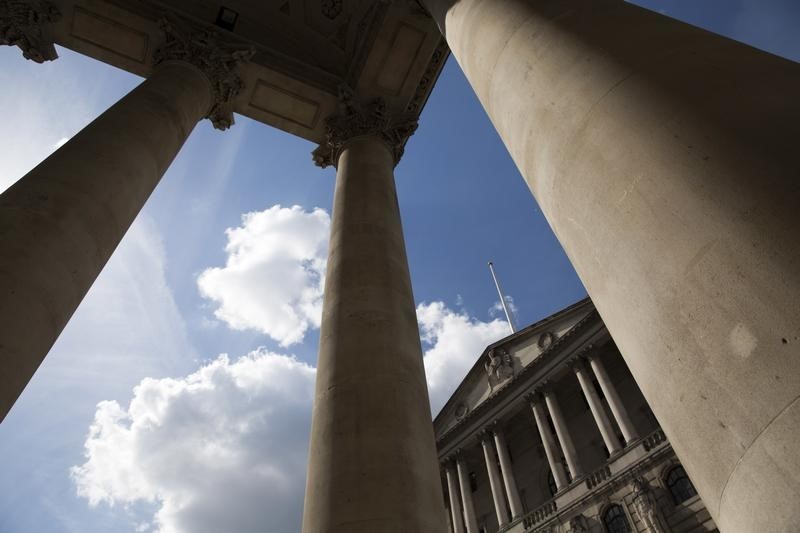By William Schomberg and David Milliken
LONDON (Reuters) - A number of Bank of England rate-setters are moving towards voting for the first increase in borrowing costs in over eight years, adding to expectations of a split among policymakers in August.
All nine members of the BoE's Monetary Policy Committee voted on July 8 to leave rates at a record low of 0.5 percent, as they have done since January, minutes of the meeting showed on Wednesday.
For all of them, the deepening crisis in Greece and China's financial market volatility meant the decision was "clear cut".
But the central bank said that if Greece had not been a factor, "a number" of policymakers would have found the decision not to raise rates more finely balanced than before. In June, just two policymakers described their decision similarly.
Since the MPC met two weeks ago, the risk of a Greek exit from the euro zone has diminished.
"Absent that uncertainty, the decision between holding Bank rate at its current level versus a small increase was becoming more finely balanced," the minutes said.
Economists said three of the MPC's nine members might vote for a rate hike in August, getting the ball rolling for a majority to back an increase later this year or in early 2016.
BoE Governor Mark Carney has suggested in speeches that a hike may come around the end of the year.
An acceleration of earnings growth may prove to be the final evidence that MPC members Martin Weale and Ian McCafferty need to say that the economic recovery can withstand a rate hike, even with inflation still stuck at around zero.
David Miles, who was once one of the MPC's strongest advocates for more economic stimulus, said last week that holding off on a hike for too long would be "a bad mistake".
In a media interview published on Wednesday, Miles declined to comment on how he might vote in August, his last meeting as an MPC member, saying: "I'm sure I'll have something to tell the grandchildren. What it'll be, we'll have to wait and see. It's never too late."
The MPC's July minutes showed it was divided on whether the pick-up in wages posed a threat to the Bank's inflation target of 2 percent. Policymakers were also unsure of the scale of the downward impact on inflation from a big rise in sterling and a fall in oil prices since their last economic forecasts in May.
A survey on Wednesday showed that the BoE's message that higher rates are coming has been heard by British households, especially follow Carney's speech last week.
Forty-four percent of respondents in the survey conducted by financial data firm Markit expected tighter monetary policy in the next six months, versus 31 percent before Carney's recent comments and 24 percent in June.

Wednesday's release of the minutes was the last that BoE will make separately to the announcement of its interest rate decisions. Starting with its rates announcement on Aug. 6, minutes will be published at the same time as policy decisions.